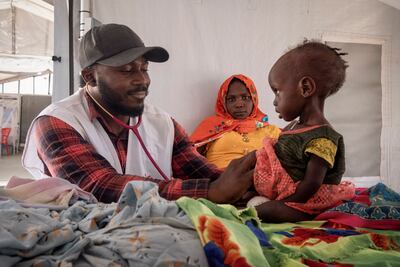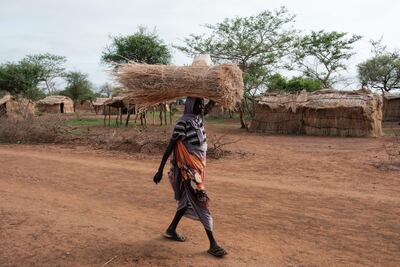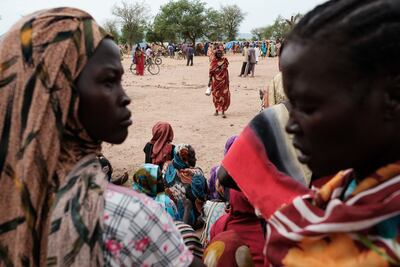Sudan’s army and allied groups have repelled a surprise attack by the rival Rapid Support Forces paramilitary on the city of Sennar in the country’s south-east, the farthest the paramilitary is known to have advanced in the region.
Sennar Governor Tawfeeq Mohammed announced the defeat and destruction of a small RSF contingent that tried to infiltrate the city earlier this week.
In a video clip posted online on Wednesday night, he also said the army and its allies were prepared to repel further attempts by the RSF to attack the city, which is on the Blue Nile, south of the capital Khartoum.
The army’s deputy commander, Gen Shamseldeen Kabash, visited Sennar on Wednesday, when he inspected the city’s garrison and reviewed plans to defend it against future attacks, according to an army statement.
The army and the RSF have been fighting a ruinous war since April 2023 that, according to UN estimates, has displaced more than eight million people and killed 14,000. The actual death toll is believed to be much higher.
The war has created a massive humanitarian crisis, with millions starving and facing potential famine later this year. The US and others have accused both the army and the RSF of war crimes, with the paramilitary specifically accused of sexual assaults, looting, arbitrary detentions and torture.
The war broke out when months of tension between the army and the RSF over their mandate and role in a democratic Sudan boiled over into violence.

This week’s attack on Sennar appeared to reflect the RSF’s push to expand territorial gains to compensate for its failure to capture the city of El Fasher in northern Darfur after more than a month of fighting.
Sennar is a historic city that once served as Sudan’s capital and is currently a commercial hub in a rich agricultural region. It is home to the country’s first Nile reservoir.
While it failed to capture Sennar, the RSF made territorial gains elsewhere.
On Monday, the RSF announced the capture of the Moya Mountain region, including 24 villages. A desolate and sparsely populated region, it sits astride the road between Sennar and White Nile province.
Videos posted online showed RSF fighters celebrating their victory with the mountain, which is more of a medium-sized hill, in the background.
On June 10, the paramilitary announced the capture of Al Fulah, capital of West Kordofan, continuing its advances in western Sudan, from where most of its fighter hail. Al Fulah is close to some of Sudan’s oilfields and pipelines.

The RSF’s forerunner is the notorious Janjaweed, a Darfur-based militia that fought on the government’s side against mostly ethnic African rebels in the 2000s.
It is accused of committing war crimes during that conflict, targeting ethnic Africans and using rape as a weapon.
The RSF is being investigated by the International Criminal Court for the killing by its fighters and allied militiamen of thousands of ethnic Africans last summer in western Darfur in attacks that forced tens of thousands to flee to neighbouring Chad.
This week’s attack on Sennar forced families fearing the fall of the city to flee their homes, taking refuge in surrounding villages as the fighting raged.
In a video posted online on Wednesday, RSF fighters said they would soon take over Sennar soon but called on residents to stay.

Fighting has meanwhile continued in El Fasher, albeit on a much smaller scale than in recent weeks. The city has been under siege by the RSF since last month, with troops from the local garrison and allied militias defending it.
The army says nearly 300 civilians have been killed since fighting erupted in El Fasher last month. Another 1,300 civilians have been wounded, it says.
Medical aid agency MSF said the last remaining hospital in El Fasher with surgical capacity was attacked by the paramilitary on Friday. Local emergency response room volunteers say other medical facilities have also come under fire.
Separately, human rights experts working for the UN on Wednesday accused the army and the RSF of using starvation as a war weapon amid growing warnings of an imminent famine in Sudan.
“Both the SAF (Sudanese Armed Forces) and the RSF are using food as a weapon and starving civilians,” the experts said. “The extent of hunger and displacement we see in Sudan today is unprecedented and never witnessed before.”
They warned that more than 25 million civilians in Sudan, as well as many who fled the country, are facing starvation and need urgent humanitarian assistance.
– – -
With additional reporting by Reuters

